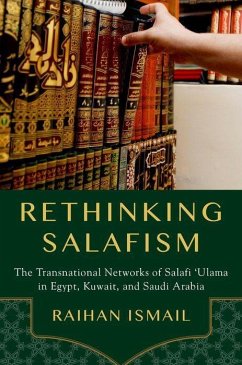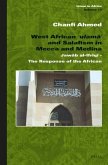Salafism has received scrutiny as the main ideological source for violent extremism propagated by jihadi groups. Besides Salafi jihadis, however, there are two other broad trends of Salafism: quietist and activist. Quietist Salafis endorse an apolitical tradition and find political activism in any form unacceptable. Activist Salafis advocate peaceful political change. Each stream is led by 'ulama, seen as the preservers of Salafi traditions. Rethinking Salafism assesses the origins, interactions and dynamics of the transnational networks of Salafi 'ulama in the region of Saudi Arabia, Egypt and Kuwait. It also offers a reassessment of the quietist/activist dichotomy, arguing that this dichotomy does not apply to certain aspects of Salafi thought such as attitudes towards the Shi'a and social matters in Muslim communities.








